Mother Earth, Sister Earth: A Response to the RSP Interview with Dr. Susannah Crockford
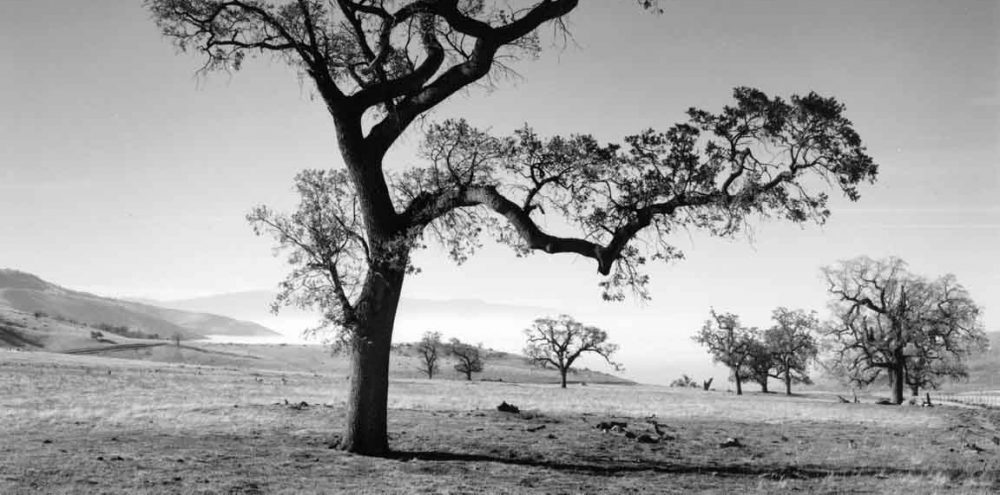
I have lived in the American Southwest much of my life, and so Dr. Crockford’s description of Sedona and its inhabitants was very familiar to me (although I have never visited that particular corner of Arizona). I was somewhat startled, though, by the idea of connecting the kind of hyperemotionalized and largely disembodied approach to spirituality and the environment that she found there to gendered discourses. On a personal level, as a former inhabitant of the region, I see much closer connections between the kind of American New Age spirituality she described and the transhumanist millenarianism that pervades much of the culture of Silicon Valley.
Re-Packaging E.B. Tylor

It is a rather odd experience to be writing a response to a podcast in which I participated, along with Graham Harvey, Paul François Tremlett, James Cox, Miguel Astor-Aguilera and Jonathan Jong. This was a roundtable discussion held at the 2017 British Association for the Study of Religion…
The Religious Meanings of Borders
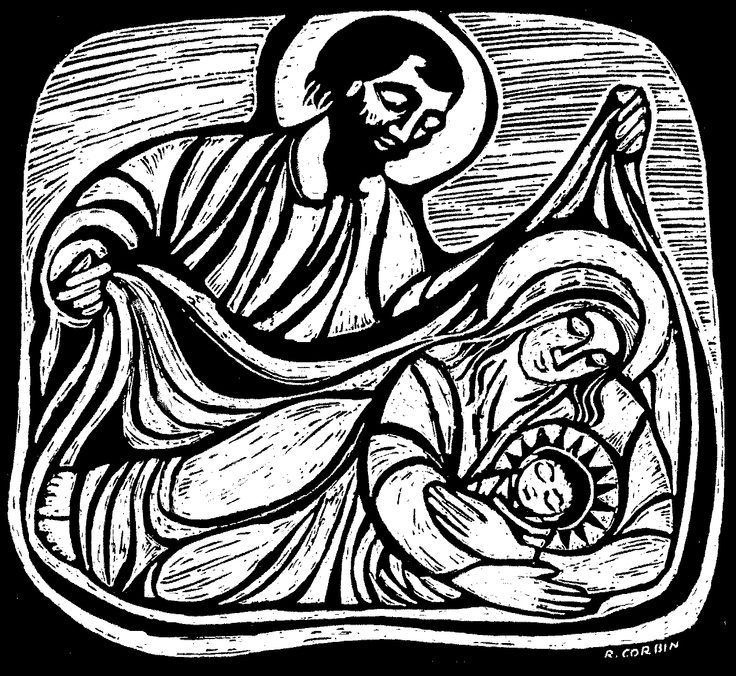
Maffly-Kipp offers what might be thought of as a mandate for borders for religious historians towards the end of the conversation. She and Gorman are talking about global histories, and specifically how global history re-shapes American religious history. Maffly-Kipp says it’s not enough to note borders and the crossing of borders, in religious histories. Instead, the meaning and affects and effects of borders on religion must be carefully examined.
Messengers of Many Gods: A Response to the RSP Interview with Tehri Utriainen

Angels don’t just make esotericism accessible to Christians; they make the legacy of Christian thought and active dialogue with the Christian world accessible to people who have often left both on bad terms, and would not otherwise be willing or able to engage with them.
Explaining Witchcraft: Response to ‘Witchcraft in Slovenia’

In her interview, Mirjam Mencej discusses her fascinating research into witchcraft in rural Slovenia. She conducted field work in Eastern Slovenia into people’s beliefs on witchcraft. Though restricted to rural areas in Eastern Slovenia, she claims belief in witchcraft is very much alive.
The Shifting Normal

Does the President elect of the United States suffer from such debilitating ideology which Obama, and Alinsky, argued against, or is he, in line with Francis’s argument, someone who has not become radicalised but rather has joined with radicals pragmatically? As much of the ‘main-stream media’ comes to terms with the election of Trump, it appears to be the second option which they are trumping for.
Conference report: “Religious Pluralisation—A Challenge for Modern Societies”
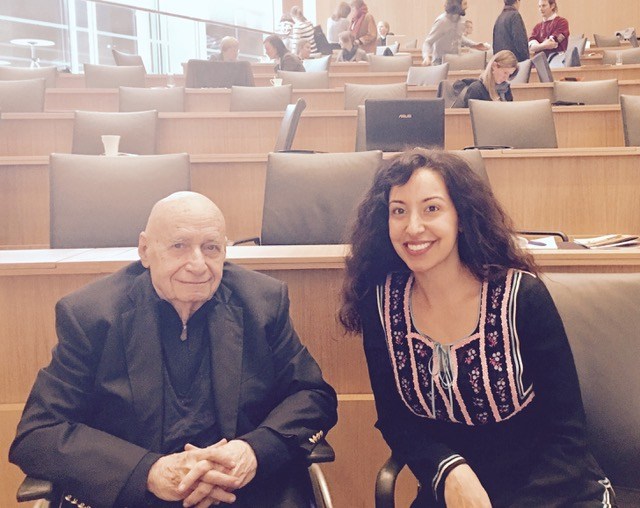
A conference report for The Religious Studies Project by Ashlee Quosigk, a PhD student at Queen’s University Belfast, Northern Ireland on the “Religious Pluralisation—A Challenge for Modern Societies” Conference, which had an important and timely mission to identify innovative research approaches as well as broad political and social scopes of action to address religious plurality.
Making Space for the Better Book
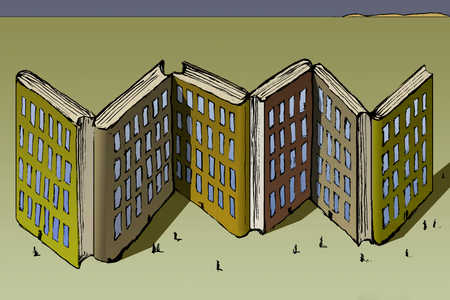
There is the perception that critical scholarship will not get a fair hearing, and there is a perception that theological or confessional scholarship is incapable of being fair.
A number of years ago I attended a keynote lecture during a national religious studies conference at which an esteemed professor declared in exasperated tones; “What Have They Done To My Buddhism?!” The tension in the room, rising during his overtly confessional presentation, reached a silent crescendo at this exclamation. Even I, as a (very) junior scholar of religion, …
Conference report: Rethinking Boundaries in the Study of Religion and Politics

“Oganessian proposed that if we were to view politics, or the public sphere, as a “marketplace of ideas,” that would allow us to move beyond the religious/secular binary that dominates western thought. In this “marketplace of ideas” framework, we should view all ideologies, concepts, or moralities as having a societal value, and politics as a kind of flea market for any given worldview to sell their perspective on how to govern the society. This framework frees religious thought of its unfair stereotype of only being suited for one’s private life, putting it on an even footing with all other worldviews.”
2015 Conference on Religion and American Culture Report
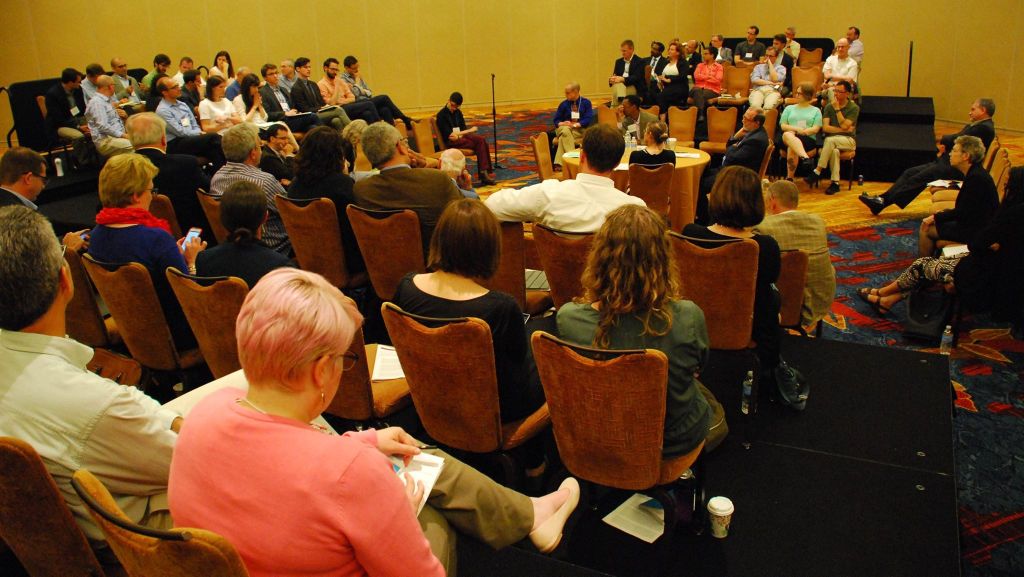
The Biennial “Conference on Religion and American Culture” was held June 4 to June 7, 2015 in Indianapolis. The conference is sponsored by the Center for the Study of Religion and American Culture and Religion & American Culture: A Journal of Interpretation. Conference report for The Religious Studies Project by Jeffrey Wheatley, a PhD student at Northwestern University.
Rebecca Rushdoony Once Condemned a Cat as a Heretic
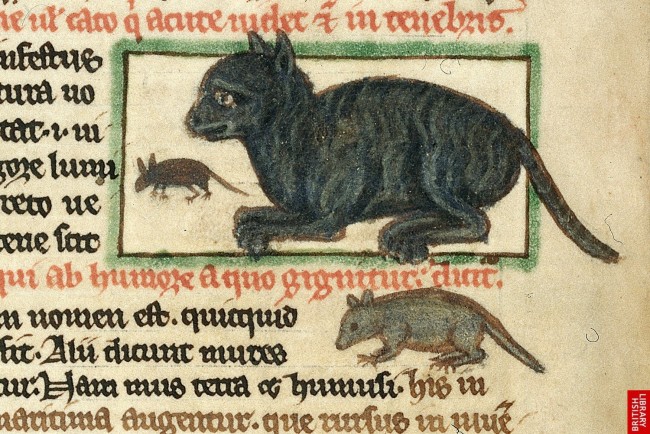
Rushdoony, as he emerges in McVicar’s narrative, does not seem inspired by his own vision of biblical families.
Rebecca Rushdoony once condemned a cat as a heretic.
The eldest child of R.J. Rushdoony, an American theologian dedicated to helping Christians learn to build God’s kingdom on earth, Rebecca was mad the stray cat wouldn’t stay put. So she pronounced the cat damned, much to her father’s amusement.
“Societies in Transition: Progression or Regression?” – BSA Conference Report

“Societies in Transition: Progression or Regression?” British Sociological Association (BSA), University of Glasgow, 15-17 April 2015. Conference report for The Religious Studies Project by Rachel Hanemann.
The British Sociological Association’s conference was held this year at the University of Glasgow. The conference theme was “Societies in Transition: Progression and Regression,…
Of Demon Kings and Protestant Yakṣas
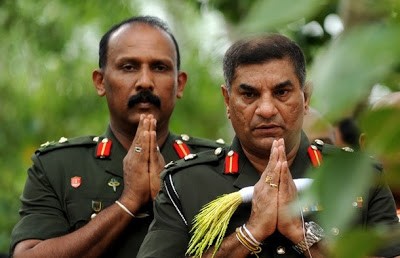
The disappointment of Western pacifists here is not unlike the reaction of early Orientalists who, disappointed by the ritualism and deity-worship they found in living Buddhist cultures, described a degenerate Buddhism.
Let me begin by saying that this is not a critique, but an effort to contribute to a conversation about issues that have affected me personally as a scholar. In particular,…
Workshop: ‘What is religious belief?’ report

The question ‘What is religious belief?’ has a long history and with no definitive answer to date. The aim of this one day workshop was to shed new light on the question by combining three perspectives on the matter: cognitive science of religion, philosophy, and theology. The day consisted of four talks by Neil Van Leeuwen (philosopher), Michiel van Elk (cognitive scientist), Helen de Cruz (philosopher) and Gijsbert van den Brink (theologian).
Keeping the Bar Steady: The Complexities of Interdisciplinary Approaches to Religion

While evolution does provide a biologically rooted framework that affords cognitive psychologists the theoretical rationale for extrapolating that all cultures utilize the same mental facilities (albeit quite differently depending on their environment), in order to explain religion in all its variants both past and present, cognitive psychology is both necessary and sufficient.
